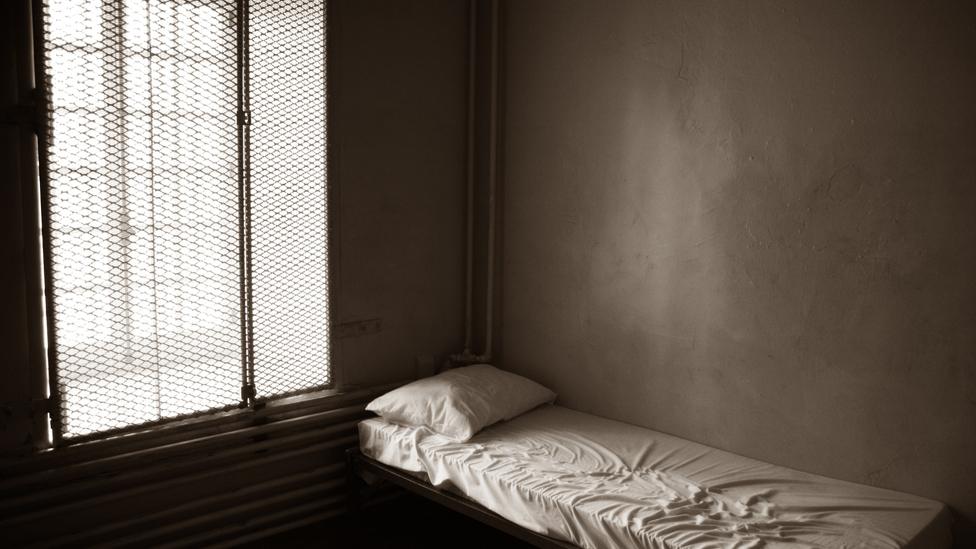Welsh prisons: Gang violence blamed on governments
- Published
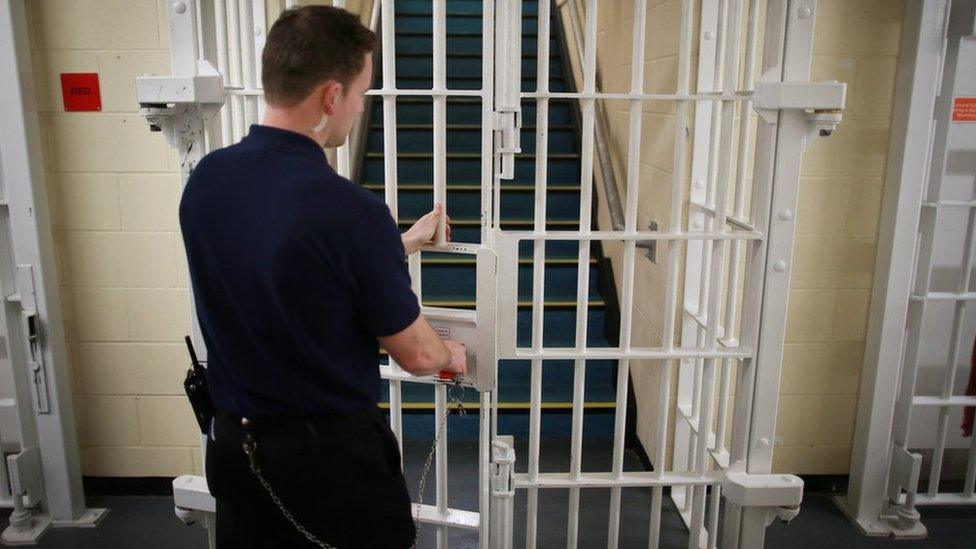
MPs heard a rise in violence was partly down to problems with staff recruitment and retention
Gang violence, poor healthcare and crowding in Welsh prisons stem from poor collaboration between the UK and Welsh governments, according to MPs.
The two governments are responsible for different aspects of the prison service in Wales, meaning some issues fall through the cracks, they said.
They also want a review of the north Wales "super-prison" before there is any decision to build one in the south.
The Ministry of Justice (MoJ) said it regularly met Welsh ministers.
The Welsh Government said it recognised the need to improve prisons in Wales.
The Welsh Affairs Select Committee called for the creation of small custodial units closer to home for young offenders, to tackle gang-related problems at the Young Offender Institution at Parc Prison in Bridgend.
Young offenders from England brought gang-affiliations with them, the report said.
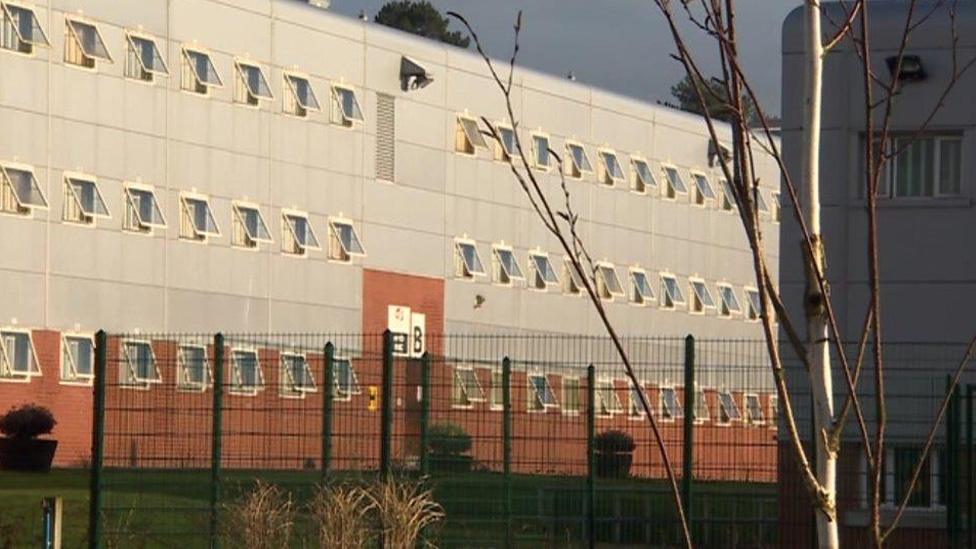
Parc Prison in Bridgend - there are concerns about gang-related issues at its young offender institution
Previous plans for a new super-prison in Port Talbot were dropped, but the committee heard concerns any new institution would primarily be an overspill for English prisoners.
They urged the UK government to ensure any new development would primarily service the needs of Welsh inmates.
Worsening prison safety was attributed to a rise in illicit activity, such as smuggling in drugs and mobile phones, and MPs said there should be airport-style scanners in all Welsh prisons.
The prison service is managed by the MoJ, but parts of the system, such as healthcare, are managed by the Welsh Government.
The committee said it had found many issues regarding healthcare provision such as a lack of mental health care and long waiting times for services such as dentistry, and called for a central unit in NHS Wales providing services for prisons.
It also noted problems because health policies on drug treatments differ between England and Wales.
"In English prisons, prisoners who are dependent on drugs, such as Spice and psychoactive drugs, are offered opiate substitution treatment, whereas in Welsh prisons psychosocial and clinical support is given.
"The committee heard that prisoners who are transferred from English to Welsh prisons pose a security threat given the expectation they will be prescribed a substitute and are then faced with withdrawal symptoms."
They said work must be done to retain experienced prison officers and improve training for new recruits, after they heard a rise in violence, self-harm and self-inflicted deaths were partly caused by problems with staff recruitment and retention.
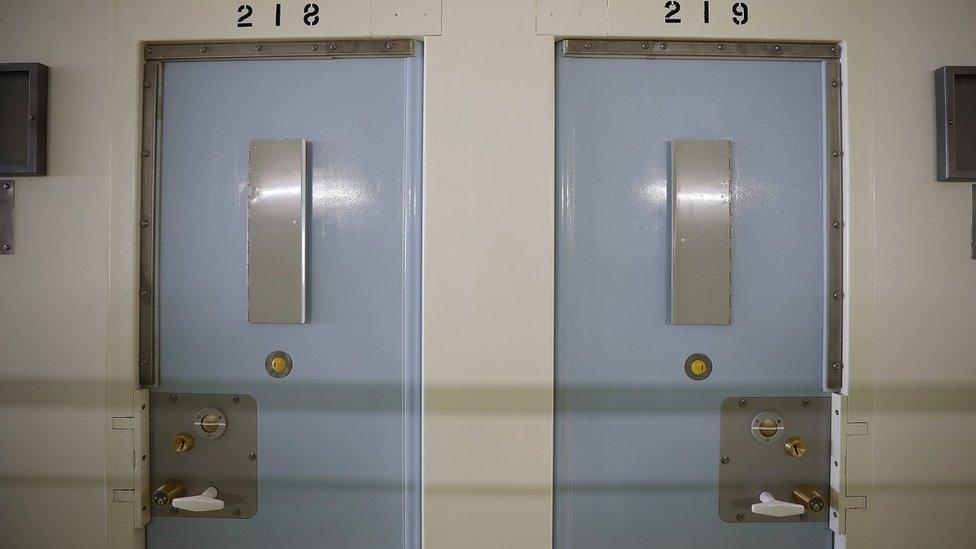
Super prison HMP Berywn in Wrexham holds more than 2,000 men and is the largest in England and Wales
The report also called for:
Residential women's units in north and south Wales to be established so women offenders can stay in Wales
Work to be done to avoid prisoners becoming homeless on release
Better data on Welsh-speaking prisoners and the improvement of services for them in England and Wales
Chairman of the committee, David TC Davies MP, said the issues raised needed to be addressed urgently before the UK government considered any new prison development in Wales.
He added: "I come from the right of the Conservative Party, I come from that tradition of those who believe in prisons. But I don't believe that prisons should be punitive.
"There is a place for punishment, there's also a place for rehabilitation and training."
"We're all human - I've spoken to people who I'd employ tomorrow if I was in the haulage business still, who've done something very, very stupid but are not bad people.
"So let's help them because if we don't offer help they're back into a cycle, a routine of crime and drugs so society doesn't benefit."
The Ministry of Justice said: "We regularly meet with the Welsh Government and have worked together on strategies to improve learning and skills in prison, health services, and offender rehabilitation.
"We will carefully consider this report and respond in due course."
The Welsh Government said: "While justice policy is a non-devolved matter, we recognise the need to work with the Ministry of Justice across the areas that we are responsible for in order to improve prisons in Wales."
- Published18 April 2019
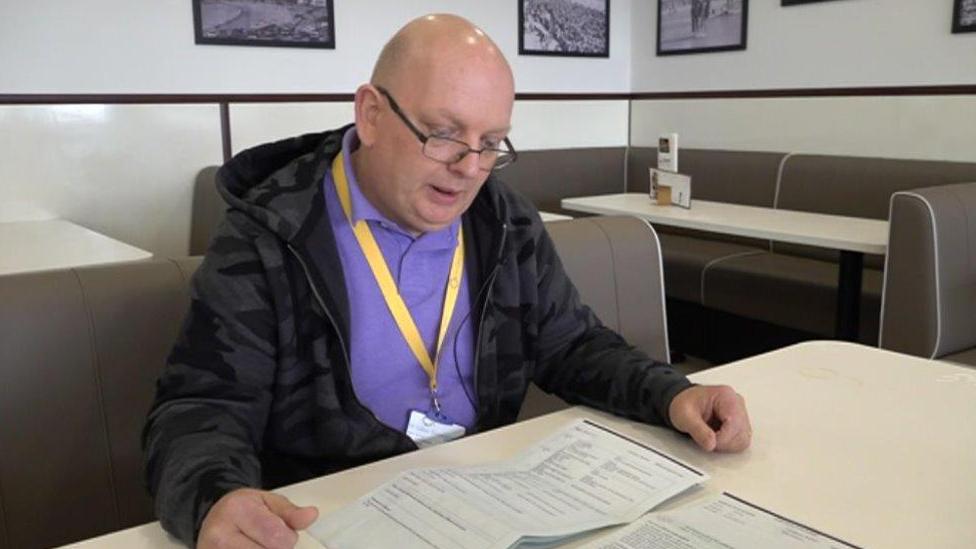
- Published12 February 2019
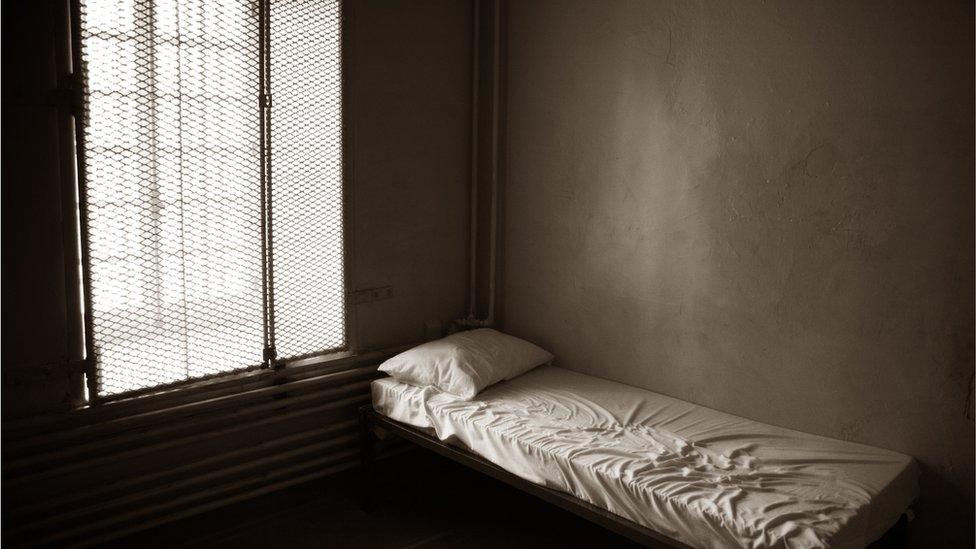
- Published16 January 2019
